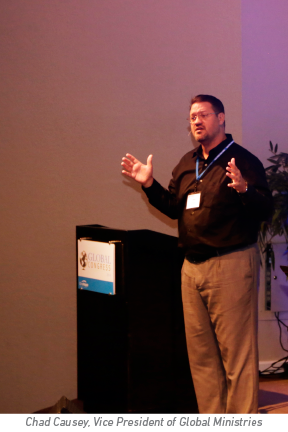 I was surprised to read The Danger of “Measurable Outcomes”, an excerpt from the upcoming book Renaissance: The Power of the Gospel However Dark the Times by Dr. Os Guinness. As one of the foremost apologists for the Evangelical church in the West, Dr. Guinness’s writings are both highly respected and influential.
I was surprised to read The Danger of “Measurable Outcomes”, an excerpt from the upcoming book Renaissance: The Power of the Gospel However Dark the Times by Dr. Os Guinness. As one of the foremost apologists for the Evangelical church in the West, Dr. Guinness’s writings are both highly respected and influential.
This excerpt was a word of caution to the Majority World Church. Dr. Guinness made some very important points regarding the difficulty in quantifying many of the things in life that are most important to us, the naiveté in which we often lead the church and our ministries, and the tyranny of the spirit of the age that desires to reduce all of life to data sets with precise predictability. I agree that we can have ‘an idolatry of numbers’, that many things are not easily quantifiable, and that the church can be ‘befuddled over the difference between success and faithfulness’. I could not agree more with Dr. Guinness that we have idolized success, particularly in the pastorate regarding church attendance, with big churches being the winners.
I wish, though, that Dr. Guinness had written of the greater danger—the danger of fruitless ministry. If there is some danger in trying to measure the fruit that our ministries produce, there is far greater danger in indifference to our ministry outcomes, romanticizing our activities and efforts without asking what they are producing. As leaders of the Church, too often we have asked far more of others than we ask of ourselves. We want effectiveness in how our children are taught in school, how our doctor prescribes medication, how our broker invests our portfolio, or how our mechanic repairs our vehicle. In all of these fields, effectiveness is a critical component of faithfulness.
In ministry, there cannot be faithfulness without the intelligent and intentional pursuit of fruitfulness. Though it is at times beyond our control, it is not beyond our responsibility—it is what moves us to prepare more carefully, to evaluate more consistently, to be more honest and thoughtful ministers of the gospel. The alternative is to risk being hired hands whose sheep are perishing for want of a shepherd, trees without fruit taking up precious resources in the vineyard, or clouds without rain while the land sits parched and barren.
The Scripture commands us to be fruitful and to judge according to fruit. Fruit is the observable result of health, the fulfillment of purpose, the actualization of potential. In the Bible, fruit represents results, evidence, legitimacy, and sustainability.
Since only the excerpt was published, perhaps later in his book Dr. Guinness will raise the more important question:
 As ministry leaders, why do we care so little about the fruit of our work?
As ministry leaders, why do we care so little about the fruit of our work?
 Why do we invest so little in evaluation and innovation?
Why do we invest so little in evaluation and innovation?
 Where are the new wineskins?
Where are the new wineskins?
As church attendance, Scripture engagement, and Biblical marriage and family decline in our country, we continue to do ministry much the same way in churches across America.
If the Majority World Church is to learn from our mistakes, learn from our failure to measure what matters and reject egocentric metrics of success for the hard and important work of evaluating the Biblical fruit of your ministry.
You should also read:
- What is Outcome Based Ministry?
- Tips to Build a Leadership Dream Team
- Can what you don’t know hurt your ministry?



